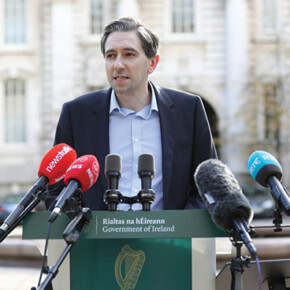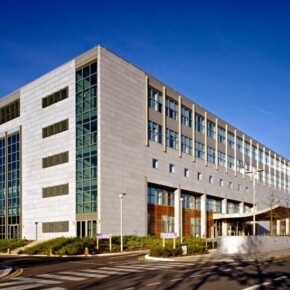Urgent action on knife crime demanded
Jack Gleeson 01 Oct 2025
The government is facing mounting pressure from Northside politicians to urgently address knife crime following two recent brutal stabbings in the city centre, one of which left a teenager fighting for his life.
The violent attacks, which saw an English tourist stabbed in Temple Bar and a 17-year-old boy sustain multiple stab wounds on Eden Quay after being attacked by a group who fled on eScooters, have ignited fresh calls for a more effective strategy to combat the carrying and use of knives on the capital’s streets.
The call for action comes just weeks after An Garda Síochána published a detailed analysis of knife-related crime over the past decade that found an overall drop in assaults involving knives.
However, the report also revealed that on average, five knives are seized by gardaí every day and there was a 28% increase in knives seized between 2020 and 2024.
Dublin Garda divisions have the highest levels of knife seizures with the capital accounting for between 40% to 50% of all seizures nationwide.
The recent stabbing incidents in the city centre have prompted sharp criticism of the the government’s current approach. Labour’s spokesperson on Health, Marie Sherlock, accused the government of failing to act, pointing out that an Anti-Social Behaviour Forum established in 2020 has yet to publish any recommendations.
“Across many of our communities, including in my own constituency, the carrying and use of knives has become normalised for some young people,” the Dublin Central TD said. “Alarmingly, a siege mentality has taken hold over some groups of young men. No one should feel that they must be armed with a knife to feel safe.”
Deputy Sherlock argued that deterrence alone is not working and that a broader strategy is needed.
“We accept that we need deterrence, but sentencing will not be enough to make our streets safer,” she said.
Speaking last week on RTÉ’s Morning Ireland, CEO of business representative group Dublin Town, Richard Guiney, said an increase in knife crime hadn’t come as a surprise.
“We were aware of an increase in knife crime in the UK and I suppose we felt it would come to Dublin and unfortunately it has,” he said. “In terms of the juveniles in the city, there has been difficult behaviour since Covid and I think we do need to address that in a very systematic way.
“There is a cohort that you know, their behaviour is very difficult, and I think we need to look at things like exclusions or curfews, so that we take them out of harm’s way, and indeed prevent them from influencing other kids into more dangerous activities.”
Other local politicians including Social Democrat TD, Gary Gannon, have also been calling on the government to tackle knife crime.
“Throughout Dublin city, even youth workers are starting to feel scared as they go about their work, such are the levels of increased violence and intimidation,” he told the Dáil last week.
However, in response to Deputy Gannon Minister for Justice, Jim O’Callaghan, acknowledged that “there are parts of Dublin city that can be unsafe” but added that the city was predominantly “a safe city”.
“Look at the crime statistics; they are down,” he said. “Look at the knife statistics; they are down. The Gardaí are doing a good job and the Deputy should get behind his city rather than denigrating it.”
Earlier this year, Gannon’s party announced a strategy to tackle violence in Dublin that included the launch of a city-wide knife crime awareness and amnesty campaign.
His constituency colleague Deputy Sherlock agrees that an amnesty should be given consideration along with other measures.
In 2024, 325 knife seizures took place in the Garda Dublin North Central area, which covers large parts of the north inner city in my own constituency,” she said.
“We need solutions that are based on tackling deprivation and marginalisation, making it more difficult for people to get their hands on exceptionally sharp knives, improving education on the impact of knife crime, and ensuring that diverting young people from crime is at the heart of any strategy.
“And we must think outside the box and give very serious consideration to a knife amnesty as they have in other cities such as Glasgow and London to encourage people to dispose of dangerous weapons.
“How many more young people are injured, or worse, before we see real and effective action by the government on knife crime?”











